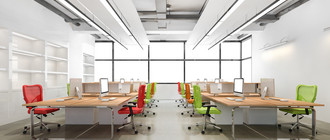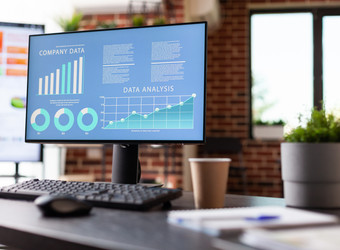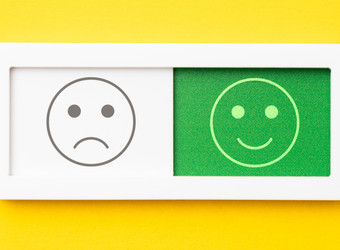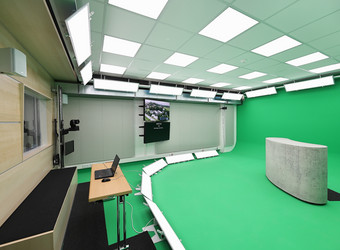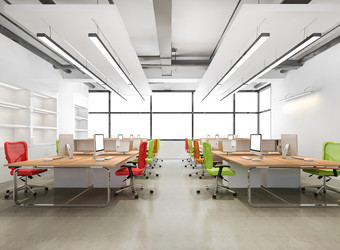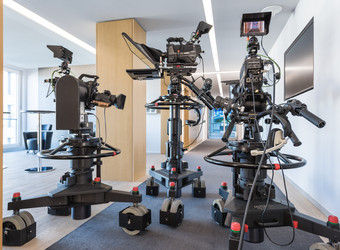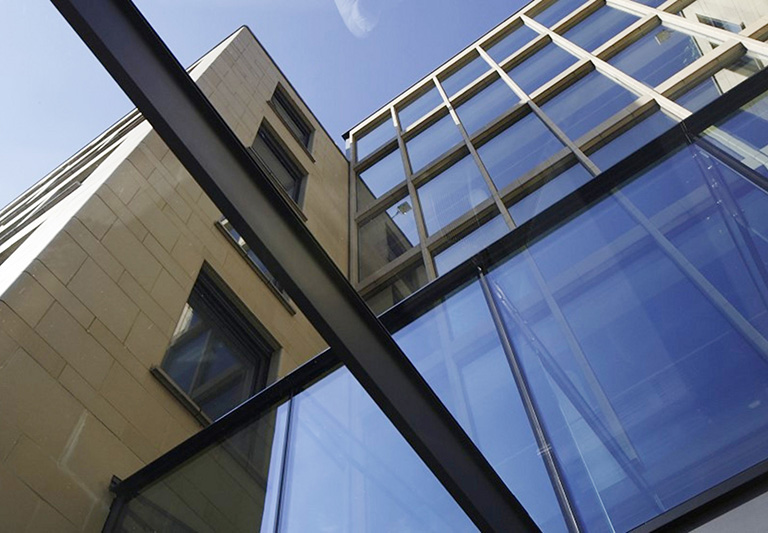Framed family photos on one side, a decorative animal on the other and small lucky charms and handmade items from the children on the monitor feet. This is how many typical desks in offices look like when the team members are sitting at fixed workstations. Cozy and homely. But also rather untidy and not very professional.
Empty desk with two monitors and a keyboard on top. Plug in your laptop and start working – this is reality at mbw since April 2022. That's because we've been sharing desks since then. This means that no one has a fixed workstation any more. All workstations are available to all employees. A desk is booked in advance using software, and the few personal items are packed away in a box in the evening.
Well organized thanks to desk sharing software
The principle is simple: due to working from home, business trips, illnesses and vacations, the entire team is practically never on site. Instead of leaving the desks of absent employees unused on these days, they are taken by other colleagues. Even if there are fewer workstations than team members, everyone can usually find a seat.
If a company opts for desk sharing, there are two ways of implementing it: either the "first come, first served" principle. The "early birds" in the team then have a free choice of workstations. Those arriving later have to sit whereever there is a free seat. Or you can work with a digital booking system. mbw has opted for this option and uses the desk-sharing app "Deskbird". "With the 'first come, first served' principle, you never know who will be in the office," explains Managing Director Caroline von der Marwitz. "I wanted a professional solution that is fun and doesn't cause frustration. Nobody wants to come into the office and not knowing where to sit or whether they even have a seat." The manager also always has an overview of the utilization and can see which workstations are generally booked frequently and which are less so.
Departmental thinking is dissolved
The idea of desk sharing was born out of necessity at mbw. "Due to renovation work, we had to give up some office space," remembers Caroline von der Marwitz. "As a result, we suddenly had fewer desks than employees." This was the classic situation for desk sharing and the employees loved it! Victoria Dennemark has only been at mbw for a short time and thinks desk sharing is a good idea, especially for this reason. "You get to know people much faster this way," she says. "After all, you always have a different person sitting next to you from time to time."
Colleague Karen Just, on the other hand, was already part of the team when the desk-sharing system was introduced and went along with the change. It wasn't difficult for her. On the opposite! "It's super flexible," says the account manager happily. "It's good to be able to sit down with the colleagues you're currently working on a project with." In addition, departmental thinking is dissolved, people are more likely to exchange ideas with other departments and overall cooperation is strengthened by desk sharing, says Just.
Desk sharing has advantages and disadvantages
Even if mbw employees support desk sharing, the concept also has disadvantages. Companies should carefully consider the pros and cons.
Cost savings
Smaller office spaces are sufficient. This reduces rental and energy costs.
More professionalism
Desks are tidier and largely free of personal items.
Employee well-being
More freedom of choice and flexibility promote satisfaction. There is also no risk of having a permanent seat neighbor with whom you don't get on well.
More creativity
Changing seat neighbors makes it possible to exchange ideas with other departments. This encourages new ideas.
Better team spirit
The typical "group formation" is reduced and you are forced to look "outside the box" more often. This leads to better cooperation overall.
Expenditure of time
Employees have to put away their personal belongings in the evening and unpack them again in the morning. In addition, searching for workstations or booking them takes time.
Less feel-good factor
Some employees feel more comfortable having permanent workstations where they can make themselves feel at home.
Possible stress factor
Changing seat neighbors and the need to remember reserving a table every day can cause stress.
Requirements for technology and accessibility
It may be necessary to invest in technology first to ensure that everyone can work at every desk. Desk sharing may also not be suitable for physically impaired employees if not all workstations are equally accessible.
Desk sharing works well at mbw. Only if it involves maintaining cleanliness colleagues occasionally remind each other to be more commited.
The manager herself also takes part in the desk sharing concept and decides not to have her own office, even though she works in the office every day and never from home. ”I often book myself the same desk for several days in a row because I am a creature of habit“, she says and admits: ”Sometimes I forget to clear my desk if I am sitting somewhere else the next day.“ Von der Marwitz mainly sees the advantages of the desk sharing concept. She doesn´t miss one thing in particular: ”I like the fact that there are no longer so many personal items on the desks everywhere“, say the Managing Director with a smile. ”It all looks a bit tidier now.“

